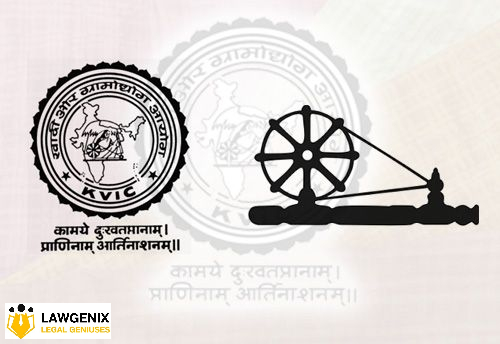Gandhi made the Swadeshi Movement synonymous with khadi. He promoted its simplicity as a social equalizer and made it the nation’s fabric, Khadi being introduced with the intention of boycotting foreign goods, becomes a national movement under Gandhi Ji. Post independence, the movement sustained, and the All India Khadi and Village Industries Board was formed, which later ended up in the formation of Khadi, Village and Industries Commission (KVIC). Presently, KVIC is responsible for the planning, promotion, organization and implementation of programs for the development of khadi and other village industries in rural areas with the coordination of other agencies in rural development wherever necessary.
BRIEF INFORMATION OF PARTIES INVOLVED IN THE CASE STUDY:
Plaintiff:
The Khadi and village industries commission (hereinafter referred as plaintiff) is a statutory body formed in April, 1957 by the Government of India, under the Act of Parliament, ‘Khadi and Village Industries Commission Act of 1956.
Defendant:
Raman Gupta (owner of website https://khadi-by-heritage.business.site/ ) The website use to sell cosmetic and medical products under the name “Khadi by Heritage.”
Facts of the case:
The plaintiff Khadi and Village Industries Commission said that the word is being written on their brand logo under the rotating charkha and that is the recognition of the brand. In spite of clothes etc. the brand deals with the various medicinal products that are regulatory in nature. Plaintiff gains good reputation in the market and in pursuance of that people believe in Khadi and use their products with trust during the pandemic. The defendant’s website use to sell the products like PPE kits, hand sanitizers and other medical products under the name of Khadi Heritage.
Contentions of plaintiff:
The Plaintiff contended that the defendant infringed the trademark rights of the Khadi and Village Industries Commission as the word Khadi by Heritage creates confusion in the minds of consumer that the brand is associated with Khadi and also will affect the health of people in society as quality of medical products differ.
Defendant did not appear in the court despite of many calls and other methods to call him. Now the question arises whether the court can decide the matter ex parte or not?
The court held that in Disney Enterprises Inc. & Anr. V .Balraj Muttneja & Ors., Oliver Bernd Freier GMBH & CO. KG v. Jaikara Apparels and Ors., and United Coffee House v. Raghav Kalra and Ors., and stated that when there is sufficient material in front of the court to allow the claim of the plaintiff, the decree can be passed without putting the ex-parte evidence on record.
JUDGEMENT:
- Regarding infringement, it was concluded by the Hon’ble Delhi High Court that the defendant’s mark was purposefully infringing, misleading and could adversely impact public health and tarnish the reputation and market name of the plaintiff.
- A decree of permanent injunction has been granted and the defendant was prohibited from manufacturing, selling, offering for sale any goods or services under the impugned mark and logo ‘KHADI BY HERITAGE’ or any mark deceptively similar to KHADI. The domain names have been directed to be transferred to the plaintiff and the defendant’s mark shall be rejected by the Registrar of Trademarks.
- Since the infringement was mala fide in nature, damages to the tune of Rs. 10 lakhs and costs of Rs.2 lakhs are awarded in favour of the Plaintiff.
Conclusion:
In the present case the Hon’ble Delhi High Court clarify various topics such as parameter of infringement, the conditions of ex- parte decisions. The court also states that this case not only belongs to the trademark infringement but also affects health of the public at large as Khadi being the brand is trusted by people because of its quality. Health of public is given the utmost priority while deciding the case.

